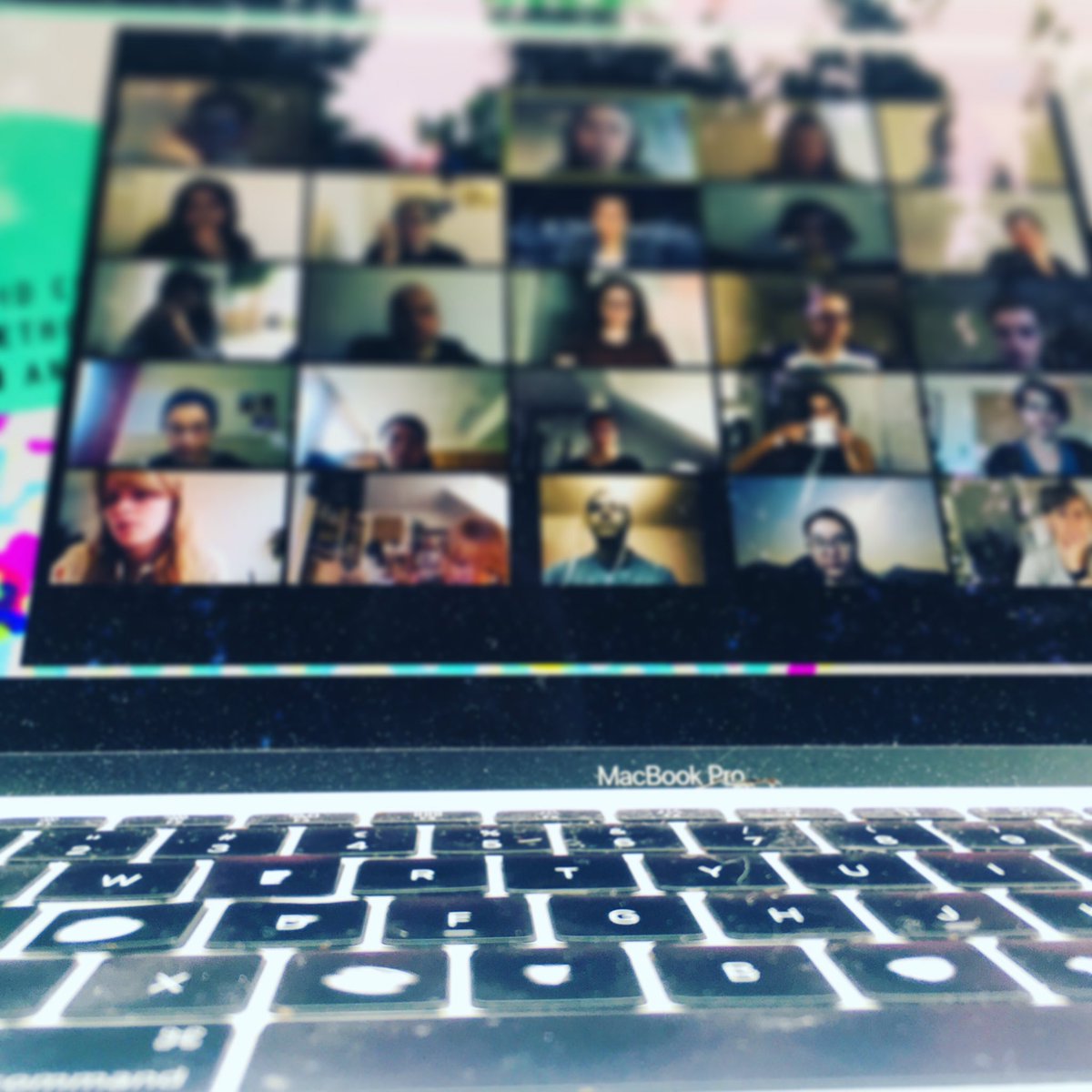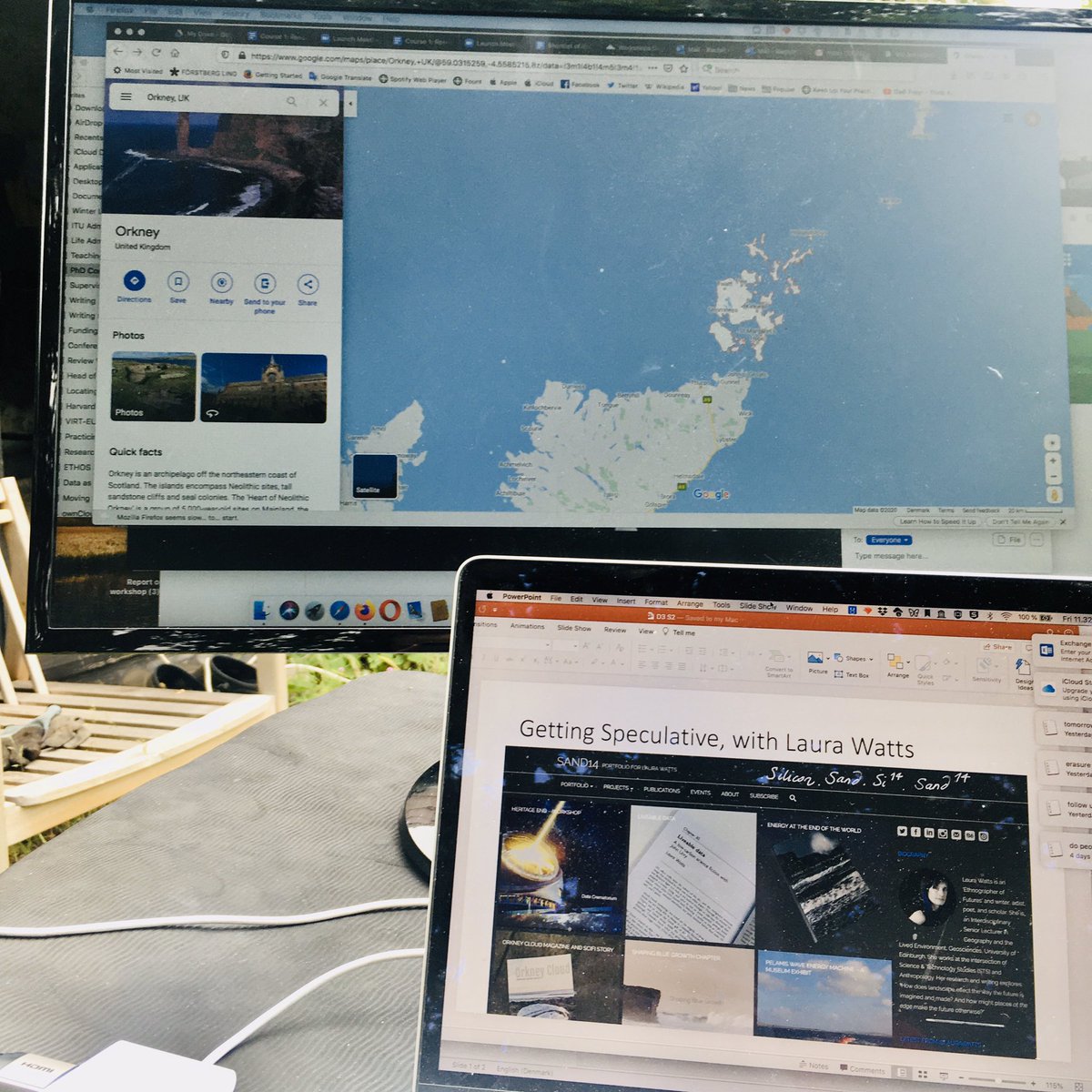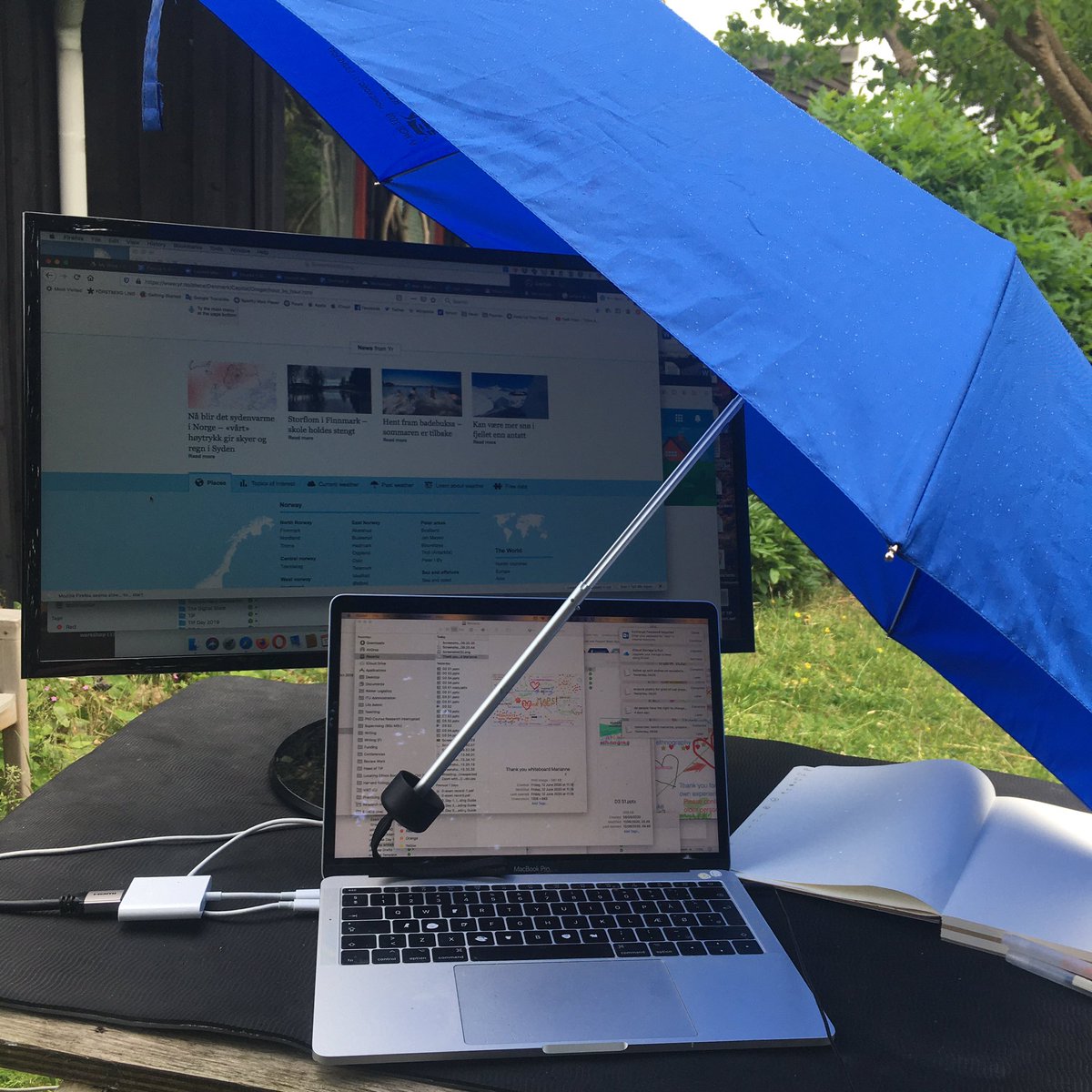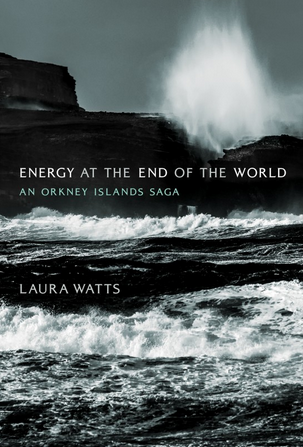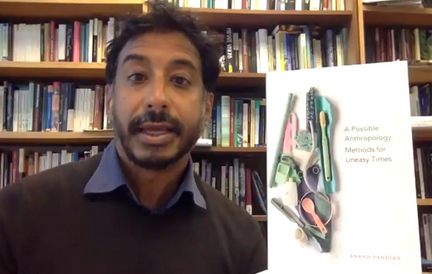Research, Interrupted (Course 1) has begun! The preparations have been *intense*, and at some point I'll write up how we re-designed to accommodate the many, many applicants. The main message for now is that PhD students need both their peers & departments to be there for them.
I'll try and tweet gems from the course as we go. We're starting Day 1 with "Interruption". Here's my garden teaching setup as we absorb the fab keynote from @aballes2 @yesmar_oyarzun @katiemulrich & @vegetarianmija
Here we are at the end of the second day already! Another sunny day and no computer equipment was rained on. As one of our participants said, so many ideas cooking right now on #researchinterrupted!
Yesterday’s #researchinterrupted discussions directly addressed the grief of giving up projects long dreamed of. We talked about worries about revised project plans seeming “remedial”, and how to let go of that idea.
Our collective keynote was fantastic. Alongside her own reflections @aballes2 invited @ethnostudio coordinators @katiemulrich @vegetarianmija & @yesmar_oyarzun to share their current experiences,which have direct bearing on what course participants are figuring out themselves.
the brilliant @yesmar_oyarzun spoke about the her interrupted fieldwork amongst dermatologists and new forms of digital conference ethnography she is following into online spaces. what changes when fieldwork is not led bodily, but through the new norms of “cold emails”?
then, pulled out of her fieldwork on sugarcane products in brazil @katiemulrich made the great point of how much work it took to *not work* at her fieldsite. Shutting down a lab is labour! She has seen interruption as an activation of new international circuits of knowledge.
And tuning in from Guatemala City @vegetarianmija beautifully observed that the ravines she studies are continuing to unfold as an epistemic objects. A simple question prised open the construction of expert knowledge (& disagreements!) about how a ravine is known and done.
As the @ethnostudio ystudio collectively turned interruption into an object of study, in the Q&A @aballes2 balles reiterated the provocation she had offered in her recorded “Interruption, Reorientation”: Can this moment make you *more* of a participant observer?
Could this be a moment through which to really find shared problems, and build fields differently, by interrupting methods of extractivism and committing again to field-as-relation?
Today for Day 2 we made the move from Interruption to Expansion. Our guide was @clark_marianne who, in her generous and detailed keynote, walked us through her own project transformations. The group chat filled with discussions, suggestions, expansions.
Drawing on her deep knowledge of embodiment, @clark_marianne had us contemplating the implications of shifting from in-person presence. The researcher-as-person shone through her presentation - meditations on relation between space, bodies, objects and feelings.
We also had our first technical breakdown - my own computer completely crashed, and later, some of our group rooms had conflicting hosts, creating a “hokey cokey” of plenum and breakout rooms. Everyone was very patient.
We discussed the vast globally crowdsourced library of methods that @DALupton edited, and students found shared interests with peers. This is the most valuable part of bringing together a collective of #researchinterrupted students: the chance to talk to one another.
From @marianneclark’s invocation to be creative there came a question: what other kinds of interaction might emerge through the asynchronous, what happens if we don’t privilege the verbal or the textual?
In our final workshop of today, @jessyp, @james_maguire56 @_linehenriksen_ and @semimaris stepped in to do just this, and facilitated a drawing workshop. Through this shift in medium, pairs drew one anothers’ ‘new field’ - its objects, relations, proximities and distances.
Tomorrow we’ll turn our collective attention to speculation, futures always already in the making. @laurawatts will walk us through the importance of speculative work, & @anandspandian will help us wrestle with the unexpected. Can’t wait!
Let's go, Day 3! @katrinemkjaer is introducing @clark_marianne as she arrives to our class from Sydney on (her) Friday night. Taking questions from all groups on her #researchinterrupted keynote
I have now introduced the final, long awaited Pastry of the Day (lots of discussion amongst the Danes in the chat). Now we have entered the theme of Day 3: "Speculation". Taking participants to Orkney with the brilliant @laurawatts
For those curious, the controversial pastry was the "boss snail" / direktørsnegl (image via @ScandiStandard ).Now weathering a light shower before welcoming @anandspandian to class later today
Day 3, Speculation is hard to sum up, partly because it was the culmination of a lot of threads from the three days, and partly because it was the Friday close of an intense collective endeavour.
We had some amazing resonances between @laurawatts’s world of references and @anandspandian’s - from a shared interest in the more-than-human physical body that makes an ethnographic encounter to the enduring legacies of Ursula K. Le Guin.
In her Conversation keynote, @laurawatts quoted from Le Guin’s “Always Coming Home” upon which she builds her figure of a “future archaeologist”.
Laura @laurawatts shared the point- evident in her recent book “Energy at the End of the World” https://mitpress.mit.edu/books/energy-end-world - that it matters how stories are told, that style, too, has power to shape futures in the making.
Question time with @anandpandian ranged from the legacies of method to life stories about temporality as the groups responded to his keynote reading from A Possible Anthropology. https://www.dukeupress.edu/a-possible-anthropology
We opened the door to what A Possible Anthropology might look like from outside the United States, from a cohort of #researchinterrupted students poised to make their own possible anthropologies.
As we talked about what speculation, futures, possibilities and fantasy mean for taking dreams seriously, we learned about Doreen Kondo’s “reparative creativity” from Worldmaking (2018) and the potential shapes of lateral anthropological work.
We discussed field-notes as a what @anandspandian called a "capitulation to the momentum of an encounter", tying back to our discussion with @clark_marianne about fieldnotes needing particular care during digital encounters.
I learned so much from Course 1 participants @jegerjess @nihaarikaan @annesofie_ls @ChristBagger @cydneykate @cathlynnej @simyk4ur @TemporalSimone @Proto_Terran @LotjeSiffels @Janine_PSantos @SchybergA @selenerenselen @Tusharika24 @alexandra_cio @c_annasalling & non Tweeters
A special thanks to @ITU_Marie and Luuk Blum for their incredible organisational work, my co-organizer @katrinemkjaer and co-head of Lab @semimaris whose inspiring presence makes @ethosITU so much fun. Onwards to Course 2!

 Read on Twitter
Read on Twitter

